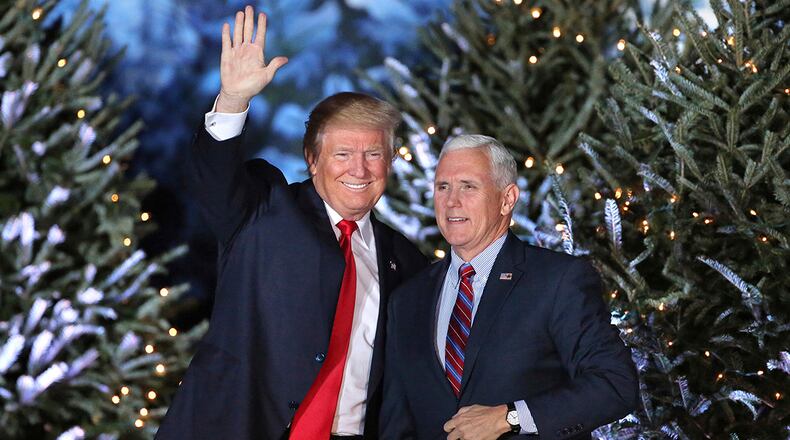Not since December 2000, in the wake of the Bush v. Gore post-election fight over the state of Florida, have we seen so much interest in the vote of the Electoral College, as electors will gather in state capitals all across the country on Monday, with the most likely outcome being a victory for President-Elect Donald Trump.
Let’s take a look behind the scenes.
1. Remember, the Electoral College does not meet in one place. If you're looking for 538 people to be in one hall, in order to cast their votes for President, that's not how it works. The electors will assemble mainly in state legislatures at various times on Monday to make their choices. Some states will immediately release the count of the votes, others may not. The votes are not set to be officially counted until a Joint Session of the Congress on January 6. Some states meet at 12 noon, others at different times.
2. What if some electors change their votes on Monday? Just like when you fork over a few bucks to play the lottery, you have a slight chance to win; therefore, there is a slight chance that the electors could screw with things and deny Donald Trump the 270 votes needed to be the President. Looking back, there are individual examples through the years of what are labeled "faithless electors," who decide to vote for someone else. In 1836, the 23 electors from Virginia didn't vote for Vice Presidential candidate Richard M. Johnson; ultimately, the Senate approved him as Vice President anyway. So yes, it could happen. But I'm not sure I would bet on a change in the outcome.
3. Some states don't allow electors to change their vote. After an elector from Minnesota either did not vote for John Kerry on purpose, or just screwed up in 2004, that state changed its law on how to deal with the vote of the Electoral College. Basically, it now says, if you don't vote for the candidate that won the state, you get booted out, and a substitute will be brought in to make sure the Electoral College votes of Minnesota go to the candidate who won the state in November.
4. A celebrity call for the electors to stop Trump. There have been a lot of voices urging electors to block the election of Donald Trump, including a group of celebrities, who cut a video to make their case. The call by Martin Sheen, Debra Messing, Loretta Swit and others has been mocked by many backers of Trump, who belittled the stars as "B-list" and more. "Why do these idiots think we care about what they think! who the hell are these morons anyway? " read one comment about the video.
5. Should the Electoral College try to stop Trump? There have been calls for the electors to do that, even from newspaper editorial boards. "We do not ask this lightly," The Albany Times-Union wrote in recent days. But other newspapers have warned against it. "Dumping Trump would have destabilizing consequences," wrote USAToday, which had urged voters not to elect Trump in the first place, arguing in September that he was "unfit for the Presidency." Something tells me we could walk out on the street, and get a lot of heated opinions about this.
Most likely, the Electoral College will confirm that Donald Trump is the President-Elect. But, as with much of this year, we’ll have to wait and see what happens on December 19.
About the Author
Keep Reading
The Latest
Featured


